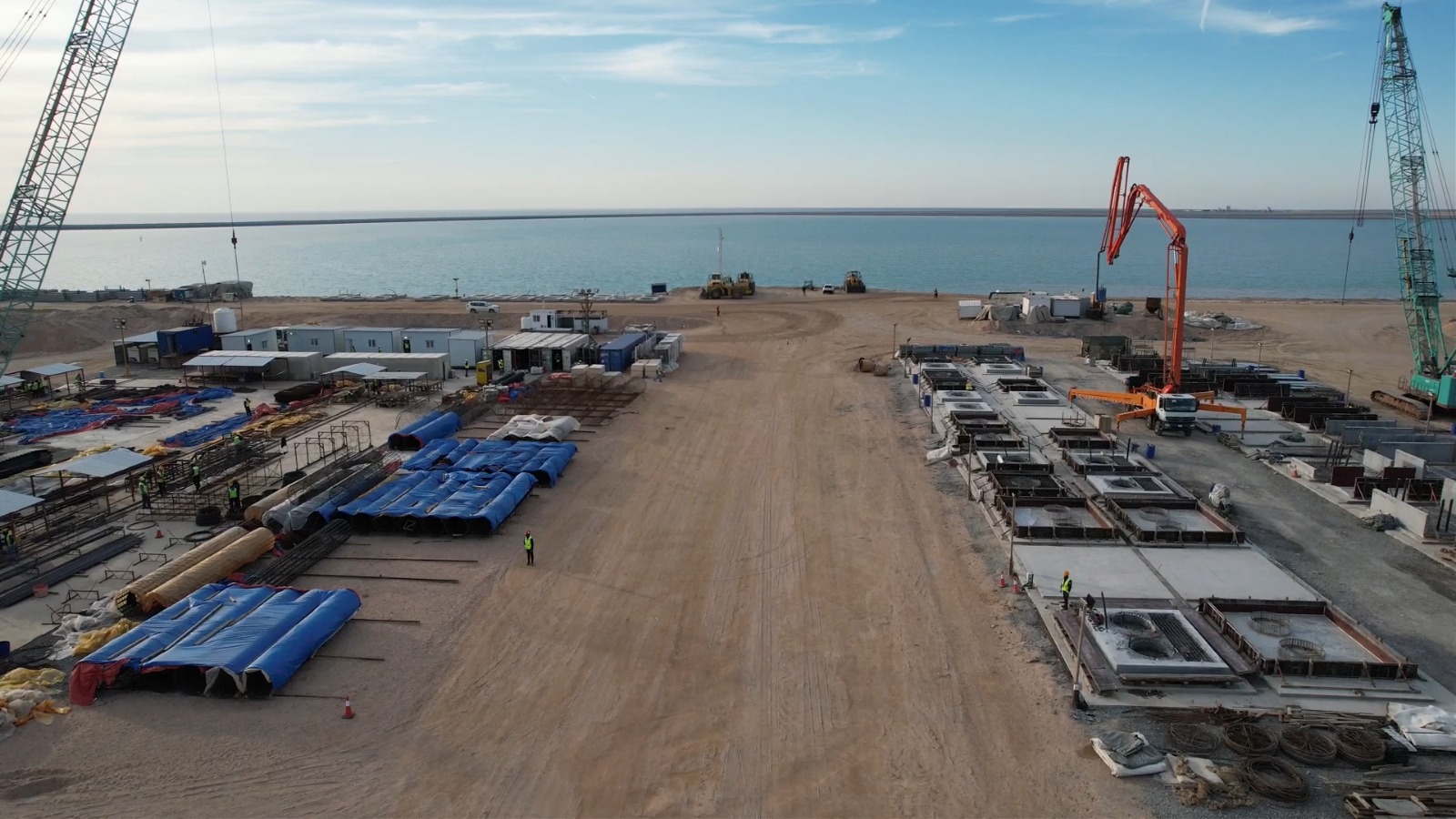“International Reconstruction” reveals the completion of the first designs for the Iraqi Development Road Project
“International Reconstruction” reveals the completion of the first designs for the Iraqi Development Road Project
2024-10-24 03:12

The report of the Global Construction Bulletin, which specializes in construction and building affairs, translated by Shafaq News Agency, explained that the engineering design of the project, which includes a 1,200-kilometer highway between Iraq and Turkey, aims to enhance the economic corridor between the Gulf and the Mediterranean.
The report pointed out that the project will also include the construction of a railway line and an oil pipeline, while estimates indicate that Turkey and Iraq intend to invest $24 billion in this corridor.
The report added that Qatar and the UAE have also joined the talks on investing in the project, which depends on the port of Faw, which is the only Iraqi port with deep water and a large capacity to receive ships and large containers.
According to the report, the Faw Port is currently undergoing a $2.6 billion development by South Korea’s Daewoo Engineering & Construction, while a five-berth container terminal with an initial capacity of 3.5 million containers per year is expected to open for business in 2025, with full completion expected in 2028.
The report said that the project’s supporters hope that the route between Al-Faw and Istanbul will be a new artery for global trade, bypassing the Suez Canal, and providing the possibility of cutting shipping time between China and Europe by two weeks.
The plans for the “Development Road” show that it will pass along the Euphrates River from Basra to Nasiriyah, passing through the cities of Najaf and Karbala, continuing to Baghdad and Mosul, and from there to the border city of Mersin in southern Turkey, then arriving in Istanbul and from there to Europe.
While the report noted that construction of the project will begin in 2025, and will be completed in three phases in 2028, 2033 and 2050, it indicated that progress in implementing the project will depend on Iraq and Turkey resolving a number of political disputes.
The report explained that among these major crises are those related to the Kurdistan Workers’ Party, in addition to Turkey’s use of water from the Tigris and Euphrates rivers, which Iraq says harms its agricultural sector, which depends on irrigation.
In April 2024, Iraq, Turkey, the UAE, and Qatar signed a quadripartite agreement on the Iraq Development Road Project, under the auspices of Iraqi Prime Minister Mohammed Shia al-Sudani and Turkish President Recep Tayyip Erdogan.
The agreement aims to enhance cooperation regarding the Iraq Strategic Development Path project, as the four countries will work to establish the necessary frameworks for implementing the project, according to a statement issued by the Prime Minister’s Office.
The strategic project of the development road is expected to contribute to stimulating economic growth and strengthening regional and international cooperation relations, as it will achieve economic integration and sustainability between the East and the West.
The project will also increase international trade, facilitate the movement of goods, provide a new competitive transportation route, and enhance regional economic prosperity.
It is worth noting that the “Development Road” project is a land and railway road extending from Iraq to Turkey and its ports. The length of the road and railway is 1,200 kilometers inside Iraq, and it aims primarily to transport goods between Europe and the Gulf countries.
The project’s investment budget amounts to about 17 billion US dollars, of which 6.5 billion is for the expressway, and 10.5 billion for the electric train. It will be completed in 3 phases, the first ending in 2028, the second in 2033, and the third in 2050.
The project is expected to provide about 100,000 job opportunities in the first phase, and one million job opportunities after its completion.
shafaq.com
